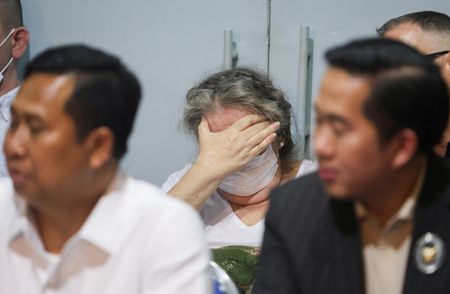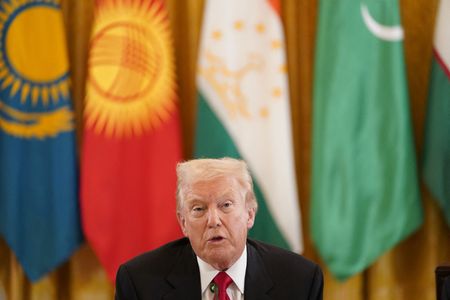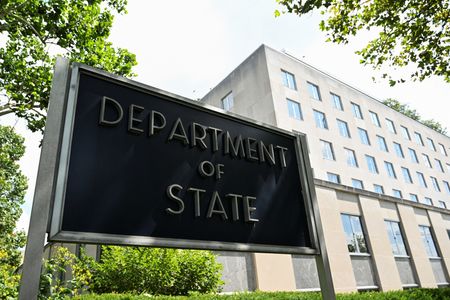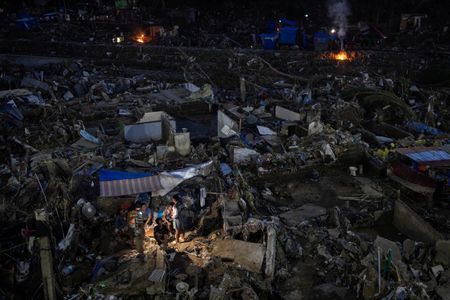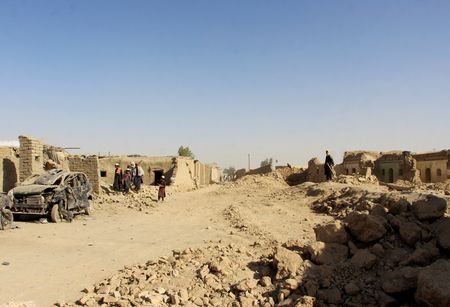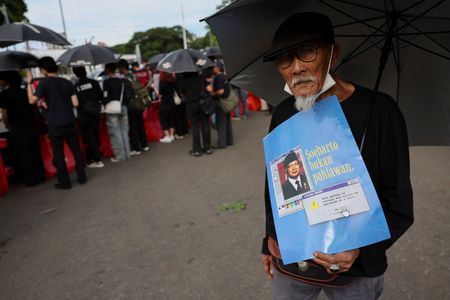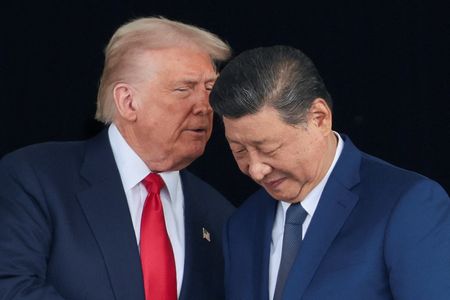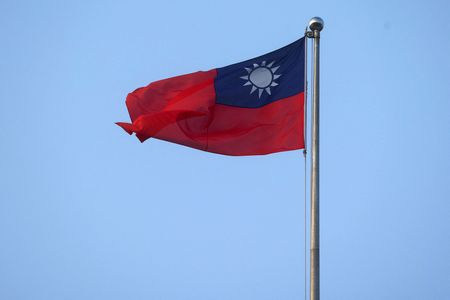By Stefanno Sulaiman
JAKARTA (Reuters) – Indonesia needs 100 trillion rupiah ($6.11 billion) in additional budget to expand its free nutritious meals programme to reach more than a quarter of its population by year-end, the head of the agency overseeing the programme said on Friday.
Dadan Hindayana said President Prabowo Subianto is considering ways to reach nearly 83 million of Indonesia’s 280 million population by the end of 2025, much earlier than the initial target of 2029.
Financial markets in Indonesia have raised concerns about the cost of the free meals programme, the centrepiece of Prabowo’s election campaign last year, warning additional debt to fund it could hurt the country’s recent hard-won reputation for fiscal prudence.
It currently has a budget of 71 trillion rupiah, meant for the distribution of meals for up to 17.5 million recipients, with a design for a gradual rollout over several years.
The scheme got underway earlier this month for school children and pregnant women, with 570,000 mouths to feed on its opening day.
“Why is the president restless? Because many children have not got the meals. He is thinking of expediting the process so that by the end of 2025, 82.9 million will get the benefit,” Dadan told reporters after meeting Prabowo.
If his agency gets 100 trillion rupiah in September, such expansion is possible, he said. It was unclear if Prabowo has approved the additional budget.
About 5 trillion rupiah of this could be funded by city or provincial governments that manage good fiscal positions, said home affairs minister Tito Karnavian.
The government’s 2025 budget currently has a deficit estimate of 2.53% of gross domestic product, below the legal limit of 3% of GDP.
Prabowo’s last-minute decision to cancel a value-added tax hike last year has already presented a challenge for fiscal management.
The finance ministry has said it had 45.4 trillion rupiah in excess cash from 2024 it could use to plug some of this year’s gap.
During campaign rallies, Prabowo had estimated the meals programme would cost 450 trillion rupiah ($27.51 billion) when fully implemented.
($1 = 16,360.0000 rupiah)
(Reporting by Stefanno Sulaiman and Ananda Teresia; Writing by Gayatri Suroyo; Editing by Martin Petty)




